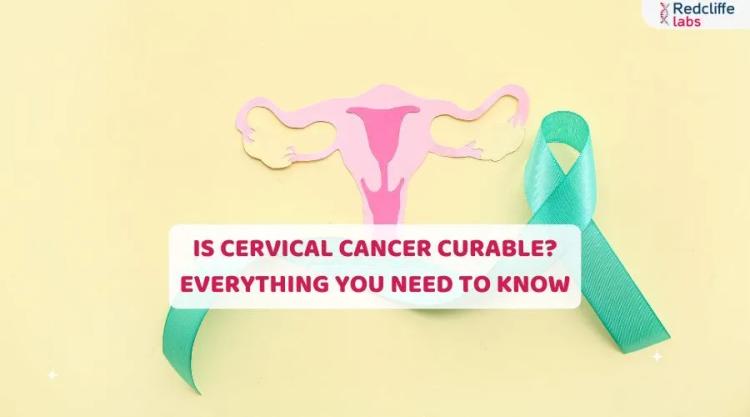Blood Cancer Screening Tests: Types, Side Effects, Risks, and More

Medically Reviewed By
Dr Divya Rohra
Written By Sheena Mehta
on Mar 5, 2025
Last Edit Made By Sheena Mehta
on Jul 19, 2025

A blood cancer screening test detects different types of blood cancers, such as leukemia, lymphoma, or multiple myeloma. It is performed to assess various abnormalities in the blood cells, bone marrow, or genetic material. This helps in the early detection of cancer or monitoring the progression of the disease.
Blood tests are one of the several methods available to diagnose, stage, and manage cancer. Blood work alone cannot help healthcare providers detect most types of cancer. Still, they help detect some blood cancers like:
- Hodgkin lymphoma is a disease (cancer) that forms in the lymph system. It is marked by the Reed-Sternberg lymphocyte cells.
- Non-Hodgkin lymphoma: This cancer is detected in the lymph system, but the Reed-Sternberg lymphocytes cells are absent.
- Leukemia: This cancer is found in the blood-forming tissues of the body, including bone marrow and the lymphatic system.
- Multiple myeloma is a blood cancer of plasma cells (a type of white blood cell), also known as plasma cell myeloma and simply myeloma.
Additionally, some specialized molecular tests and imaging studies are required to detect cancer. Let’s discover them in detail.
Different types of blood tests for cancer
Four main types of cancer blood tests are as follows:
- Complete blood count (CBC): A healthcare provider suggests a complete blood count (CBC) to detect some cancers in your blood or immune system, like leukemia and lymphoma. However, this test is limited in that it cannot detect colon, breast, or lung cancers.
- Tumor marker blood tests: These tests help identify high levels of chemicals released into your bloodstream every day. Tumor marker blood tests are categorized into three parts:
- CA-125 blood test is a tumor marker test that a healthcare provider suggests to plan treatment. It also helps monitor whether certain cancers, such as ovarian and pancreatic cancer, are reoccurring.
- PSA (prostate-specific antigen test): This tumor marker test checks for elevated PSA levels in the blood. PSA is a protein, and its elevated levels might cause prostate cancer.
- Blood protein tests are essential to check for abnormalities in the blood. High protein levels could indicate leukemia, lymphoma, or multiple myeloma. A comprehensive metabolic panel (CMP), which is often included in the protein tests, is also prescribed and helps detect certain types of cancer.
- Circulating tumor cell (CTC) tests: This is a liquid biopsy that aids in detecting tiny pieces of tumors that circulate in your bloodstream.
Other Tests that You May Need to Diagnose Blood Cancer
It is hinted above that blood tests alone cannot detect blood cancer. Some additional tests may be suggested for a cancer diagnosis. Let’s understand them in detail.
1. Biopsy: This is a common test that confirms the prevalence of cancer cells in the blood. During a biopsy, the expert takes a sample of tissue from the patient’s organ or bone marrow and sends it to a lab for analysis.
2. Imaging tests: Some imaging tests are also performed to diagnose blood cancer. These could include:
- X-rays: Also known as plain radiographs, X-rays provide pictures inside your body.
- CT (computed tomography) scans are an imaging test that helps detect diseases and injuries. They are painless and noninvasive and performed at a specialized center.
- MRI (magnetic resonance imaging) scans are painless tests that help a healthcare provider see very clear images of the organs and structures inside your body.
- PET (positron emission tomography) scans: This imaging test helps reveal your tissues and organs' metabolic or biochemical function. Tracer is a radioactive drug used to show typical and atypical metabolic activity.
- An ultrasound scan, also known as a sonogram, is not painful or uncomfortable. However, a doctor may or may not suggest this test, as it does not detect cancer as successfully as the above-mentioned tests.
3. Specialized tests: Other specialized tests may also be performed to diagnose cancer. These could include mammograms or a Pap smear test.
- A mammogram is a specialized test involving a low-dose X-ray of your breast tissue. It checks for early signs of breast cancer before symptoms appear.
- Pap Smears: This test shows infection, cancer, or other abnormalities. It is a live screening tool used to detect cervical cancer. A Pap smear test is important for individuals aged between 21 and 30 who have abnormal cells in their cervix that might become cancerous in the future.
4. Genetic Tests: These tests may also be performed to examine genes in cancer cells. Common genetic testing includes cytogenetics, molecular testing, and karyotyping.
5. Liver Function Test (LFT) & Kidney Function Test (KFT): A liver function test and a kidney function test check how well your liver and kidneys function.
6. Immunophenotyping (Cytometry): This test helps find abnormal blood cells and gives a clear prognosis to a healthcare provider about the type of blood cancer.
Does blood work help show early cancer?
Routine blood work does not completely show early signs of cancer. Hence, there are specialized blood tests that aid in detecting cancer early, including:
- The Galleri Test: This is a specialized blood test with expertise in detecting more than 50 different types of cancer. In this test, the expert uses DNA sequencing to check for unique patterns that confirm whether it is cancer.
- Proteomics-based Plasma Test: It is a new blood test that can detect 18 different types of cancer at an early stage. A 2024 study reveals that a proteomics-based plasma test helped detect stage I cancer in men assigned male at birth (AMAB).
Note: Routine cancer screenings and specialized tests can help detect certain types of cancer before they develop symptoms. Consult your healthcare provider about age-related screenings to keep your health in check.
What are the benefits of cancer blood test work?
It is a myth that blood tests for cancer can diagnose cancer on their own. Blood tests coupled with other specialized tests can provide relevant information to your healthcare provider, such as:
- If blood test reports and specialized imaging test reports show the presence of chemicals and proteins in your blood, it might indicate cancer.
- Too low or too high blood cell levels occur due to cancer and need further investigation.
- Cancer blood tests show the stage of cancer to diagnose a disease. A healthcare provider is likely to suggest contacting a cancer expert to create a treatment plan.
- Additionally, cancer blood work monitors the effectiveness of treatment. Circulating tumor cells (CTCs) help monitor treatment effectiveness in cancer patients.
- In combination with other tests, cancer blood tests check for recurrence, which means if cancer is coming back.
How can you prepare for a blood cancer test?
If suggested, a blood cancer test won’t need special preparation from a patient (you). It is a simple blood test; in most cases, it is done on an empty stomach. You might have to fast for about 8-`12 hours before the test. Do not drink alcohol or any soft drink except water, and eat anything before the test to improve the accuracy of your test results.
Additionally, your healthcare provider may also suggest avoiding supplements and medicines beforehand to bring the desired test results.
What is the procedure for cancer blood work?
A blood cancer test involves a small sampling of blood, which is further investigated in the lab, and reports are generated. Here is a step-by-step guide on what to expect during cancer blood work:
- A phlebotomist/healthcare provider will find a suitable vein in your arm for needle insertion.
- After that, he will wrap a tight band (tourniquet) around your upper arm.
- Then, he will clean the site to prevent infection.
- Insert a needle into the vein in your arm, which may cause a stinging sensation or slight pinching.
- After collecting a small amount of blood, the expert will remove the band and put pressure on the puncture site to help stop bleeding, which could cause infection.
- Lastly, he will cover the puncture site with a bandage.
Note: After collecting the blood and transferring it into a vial or test tube, the expert will label it with your name and send it to the lab for analysis.
When to See a Doctor?
Early detection helps in treating blood cancer. Common symptoms associated with the need for a blood cancer test:
- Fever or chills
- Sweating at night
- Breathing problems
- Neurological problems such as visual change, vomiting, loss of consciousness, seizures, or confusion
- Unexplained weight loss
- Extreme tiredness or weakness
A note from Redcliffe Labs!
Diagnostic testing is important for early detection and treatment. A healthcare provider may suggest a number of blood tests based on symptoms indicating the presence of cancer in the body.
Contact Redcliffe Labs for advanced blood cancer tests to support you and those you love. Routine blood tests, such as complete blood count, lipid panel, hemoglobin A1C, etc., and specialized blood cancer screenings, such as CA 125 test, CA 19.9 test, prostate-specific antigen test, and more, are available with home sample collection, bringing state-of-the-art diagnostics to your doorstep.
Healthy India Ki Trusted Labs—Redcliffe Labs is one of the leading diagnostic centers in India. It is known for offering a wide range of blood tests online, full-body checkups at home, and other diagnostic services tailored to individual needs at the best available rates. The test reports are typically available within a given timeframe.
Call or download the Redcliffe Labs mobile app to book blood tests online. Spotting cancer at an early stage is usually difficult unless it has become too large or spread. Early cancer detection can help save lives, so inform your doctor about symptoms as soon as they appear.
Step-by-step information on booking a cancer blood test online from Redcliffe Labs.
- Visit the official Redcliffe Labs website: https://redcliffelabs.com/.
- Browse or search for the specific test you need.
- Add the test to the cart.
- Complete the payment process online.
Note: You will receive confirmation through SMS and WhatsApp.
Frequently asked questions:
1. What are the risks associated with a cancer blood test?
The cancer blood test involves no or minimal risks. However, inserting a needle can cause a stinging sensation. You might have a small bruise, excessive bleeding, or rarely the vein may swell. Consult your doctor for immediate medical help.
2. What does the abnormal cancer blood test report mean?
If your blood test reports are abnormal, it may mean you have blood cancer, like leukemia, lymphoma, and multiple myeloma. A healthcare provider will advise to meet an oncologist (a cancer specialist) for additional testing to confirm the diagnosis and recommend a treatment plan.


